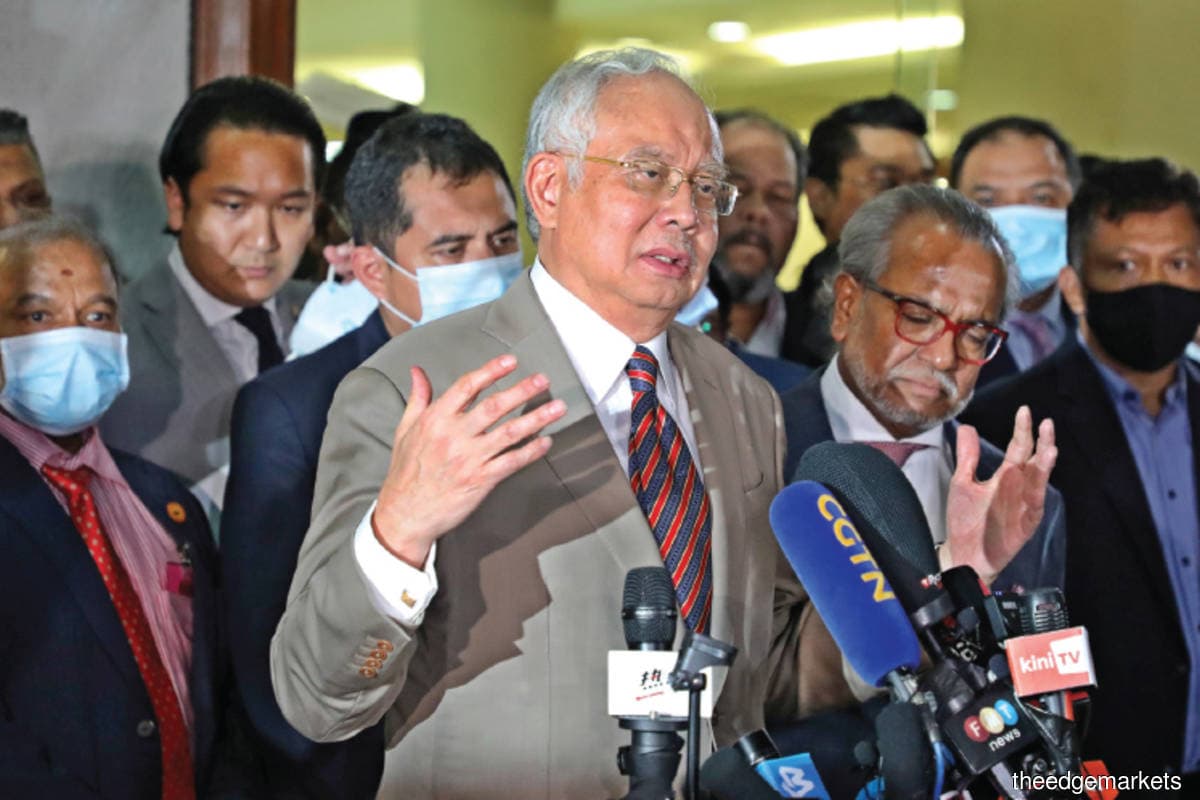
This article first appeared in The Edge Malaysia Weekly on August 3, 2020 - August 9, 2020
EVEN before High Court judge Justice Mohd Nazlan Mohd Ghazali delivered his verdict on July 28, former prime minister Datuk Seri Najib Razak had taken to his Facebook to say he would take his case to the Court of Appeal if the court found him guilty.
The Pekan Member of Parliament claimed that presenting an appeal in the appellate court before a panel of three judges instead of one in the High Court would allow for fairer judgement.
“Whatever the decision in the High Court tomorrow, it does not end here,” Najib said in a Facebook post on the eve of the verdict.
True to form, immediately after the proceedings, Najib told media he was disappointed with the decision. “I want to continue the effort to clear my name and I shall continue this struggle.”
His lead defence lawyer Tan Sri Muhammad Shafee Abdullah added: “I work better under pressure. This is a serious challenge. Although I’m disappointed, I’m not down. If there is a similarity between me and Datuk Seri Najib, we are identical in terms of working best under pressure. So, I think our challenge on the appeal will be mounted in a higher format, in a higher gear, because we believe our case is strong from the very beginning.
“I am looking forward to this appeal like I have never looked forward to any appeals before, because this is a very exciting appeal that we want to close as quickly as possible.”
In fact, when the High Court ordered Najib to enter his defence last November, Shafee indicated that the trial might drag on beyond Malaysia’s next general election (scheduled in 2023), if the appeal process goes all the way to the Federal Court.
Shafee asserted that the current judgement was only the preliminary view of a single judge, and that a seven-quorum member of the Federal Court would be more reliable.
Bar Council member and criminal law practitioner Muhammad Rafique Rashid Ali said an appeal to the Court of Appeal commences upon the filing of a Notice of Appeal, which must be done within 14 days of the date of the decision.
Najib’s lawyers confirmed filing the Notice of Appeal on Thursday (July 30) to overturn the conviction handed down by the High Court.
“In general terms, the Notice of Appeal will contain in brief that the appellant is dissatisfied with the decision at the end of the trial,” Rafique says.
“The High Court registry will then prepare the Record of Appeal. For this case, the Record of Appeal will be running into tens of volumes. The Record of Appeal will contain the notes of proceedings, all the exhibits and the grounds of decision of the judge.”
The appeal is then usually heard four to six months after the decision.
No new witnesses will be called at the Court of Appeal hearing, as there will only be submissions and oral arguments between the counsels. The panel judge will scrutinise the High Court’s judgement, notes of evidence as well as points raised by both the defence and the prosecution.
Hypothetically speaking, Shafee and his team will argue that the learned judge had erred in his findings, that the decision is flawed and/or that the defence had managed to rebut the prosecution’s case. They will have to show where and how Nazlan had committed mistakes, if any, and how the decision was adversely affected.
The prosecution, on the other hand, will defend the judgement and state that the finding is proper and should not be disturbed.
“The Court of Appeal can either dismiss the appeal by finding no appealable error on the part of the trial judge, or allow the appeal and reverse the conviction or sentence.
“The Court of Appeal may also, subject to the prosecution’s appeal, enhance the terms of imprisonment or amount of fine,” Rafique explains.
Save by subscribing to us for your print and/or digital copy.
P/S: The Edge is also available on Apple's AppStore and Androids' Google Play.